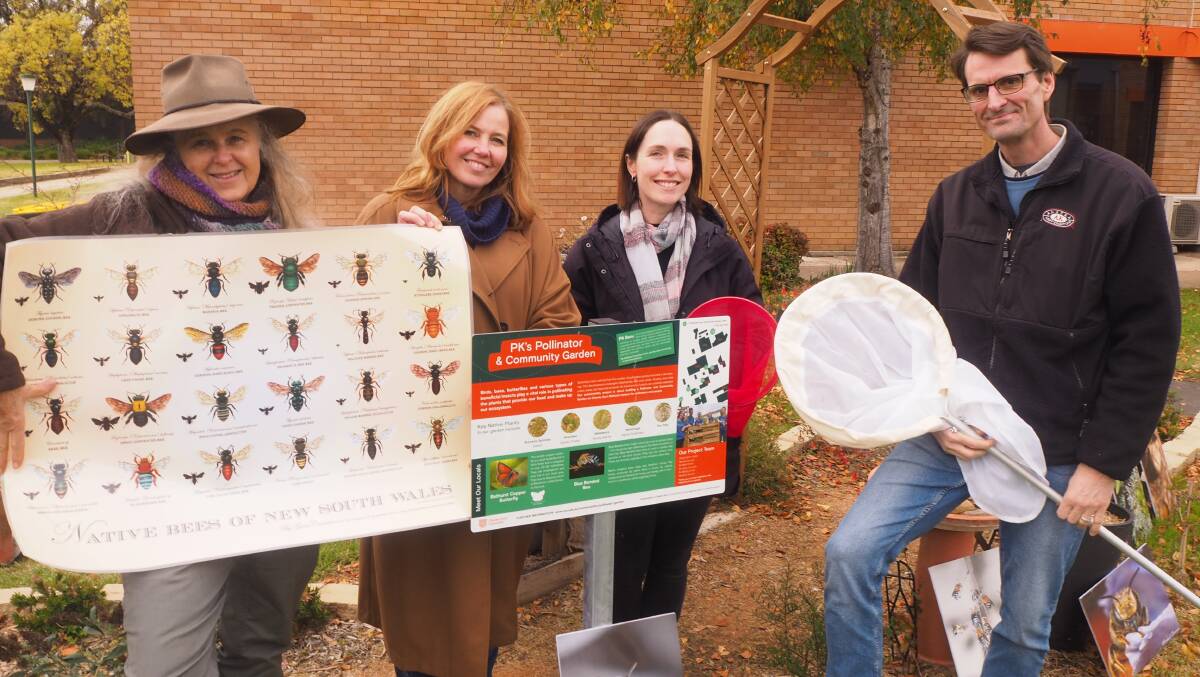
A host of Charles Sturt University [CSU] Bathurst staff members were given a unique opportunity last Friday to learn more about the variety of pollinators who are calling a new garden at the campus home.
Subscribe now for unlimited access.
or signup to continue reading
PK's Pollinator and Community Garden was installed at the university campus last October as a 'bed and breakfast' for native birds, bees, butterflies and various other insects who pollinate local plants.
The garden was named in honour of PK Basu, a well-respected business and economics academic at CSU who passed away in 2016.
CSU senior marketing lecturer Dr Felicity Small, who led the project to build the garden, said the purpose of the garden is to grow an ecology suitable for native pollinator species in the area.
"We want to build up this habitat to help pollinators native to the area get stronger and rebuild their dominance in the landscape against introduced species," Dr Small said.
"Today's [Friday's] workshop is about informing staff members on the importance of pollinators and what they provide to our ecosystem in terms of food supplies and human wellbeing."
Two key native pollinators commonly found in the region include the purple copper butterfly and the blue banded bee.
Dr Small said the Bathurst campus has a pollinator garden growing in six locations.
"We've created a number of signs to place across campus providing different information about the importance of pollinators," she said.
"It's also about getting staff and students out from their desks and offices to engage with like-minded people who share similar interests."
Dr Small said assessments at Friday's workshop found a large assortment of species who call the garden home.
"We found flies, mosquitos, ants and spiders, all of whom move pollen around the plants," she said.
"Ironically, we've held this workshop on World Bee Day, and it's up to us as staff and students of the land to keep their habitat alive."
Orange-based ecological and water sustainability consultant Dhyan Blore, who was also on hand at the workshop, said the purple copper butterfly is a threatened species in the Bathurst region, and residents have the ability to create more habitat in gardens and public spaces for them to pollinate.
"The butterfly has a very specific host plant- bursaria spinosa [a native blackthorn]- and a key location where can be found is around The Rocks on the drive between Orange and Bathurst," Ms Blore said.
"It isn't a weed, unlike what a lot of farmers think, it's an important plant that we can do a lot with to improve local habitat and biodiversity."
Our journalists work hard to provide local, up-to-date news to the community. This is how you can access our trusted content:
- Bookmark www.westernadvocate.com.au
- Make sure you are signed up for our breaking and regular headlines newsletters
- Follow us on Twitter
- Follow us on Instagram
- Follow us on Google News


